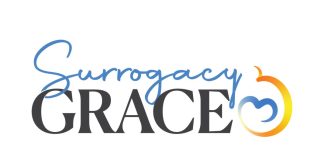Have you ever performed that agonizing, but totally necessary task of auditing your personal finances? I don’t mean just the big ticket items and expenditures, but right down to the nitty-gritty, the dollars spent on coffee shop runs, gas for the car, and cash purchases? Several months ago my husband and I spent a date night doing just that. Our family tries to live within our means, and I had always let my husband manage our finances because he does it so well. But out of curiosity (guilt) I realized this needed to be a shared responsibility (burden).

Do you have any idea how much you spend on groceries per month? What about eating out? Shopping trips or guilty pleasures? Beyond the bills what do you spend your money on? I’m not a financial adviser. We are just a family striving to be debt-free, start and build a small-business, and lead a life of simple pleasures. In doing this, we came up with some really great family-friendly tips to take control of our spending and learn to live within our means.
Spending
Whether you create an Excel sheet or use one of the many apps, documenting your spending is the first really important step. After delving deep into our bank and credit card statements it didn’t take long to understand we were not living within our means. We incurred several large medical and renovation bills in 2018 which clouded the water as to what our actual expenditures were. We had been under the impression that we were living a somewhat humble existence, but in reality we were still spending more money each month than we were earning.
Our mission became to live within our means and eventually save. We viewed it as an opportunity to find renewed joy in the simple pleasures, where a little planning and creativity can go along way to saving the dollars without a noticeable reduction in enjoyment. The little things really do add up, but our biggest expense was food. The amount we were spending monthly blew my mind. We are a family of six and try to eat organic when available, but we needed to halve what we were spending.
Take Stock and Move Forward
It came down to identifying the areas within our control where we could reduce spending to live within our means. Many expenses, mortgage payments, utilities, car payments, and health insurance are fixed payments. There may be none or little room to reduce costs here, although there may be value in looking at your commitments, seeking professional financial advice, or reviewing policies and switching providers to see if your money can work for you in different ways.
It’s easy to look at the lives of others, especially through the ever-glaring lens of social media and want your life to be a certain way, but I believe a key part of finding true contentment is when you realize that having more is not the key to happiness. Wanting what you already have is.
Steps to Living Within Our Means

- Meal plan
Aim to purchase food once a week, avoiding frequent trips to the grocery store. Make large quantities of meals to freeze or used for packed lunches. - Eat lots of healthy, cheap staples
Brown rice, lentils, beans, and seasonal vegetables. - Stop eating out
- Make a tea or coffee to go (saving you $5 a time)
- Shop in bulk
- Buy used
Clothes and furnishings. Join a local ‘buy nothing’ Facebook group. - Grow your own food
Lessons on Frugality
Getting your finances in order might just take your life in an unexpected but welcomed new direction. Here are some lessons we’ve learned from living within our means:
- People who choose a frugal lifestyle challenge themselves to think creatively. Try learning a new skill, choose to DIY, consider a skill swap with friends, and find local free community resources.
- Take pleasure in the simple things, home-cooked meals with friends and loved ones, tea beside the fire, board games, or an afternoon in the garden.
- Leading a frugal life can often lead to healthier lifestyle choices, like cooking meals from scratch using whole foods, choosing nature, and gardening.
- Find joy in knowing you are contributing to a healthier planet by reusing, recycling, repurposing, repairing, or buying second hand.
- Delayed gratification, saving for something, paying off debt, working towards a financial goal.
Living within our means does not have to be a journey of deprivation. View it as an opportunity for a positive lifestyle change. Financial security, living debt free (or on the path to achieving it!) can prove more exhilarating than a shopping spree. Feeling in control feels good.



















I’ve been using Clicklist (Fred Meyer’s grocery pickup service) to save money. Although there’s a $4.95 fee each time (after the promo period ends), I save WAY more than that by avoiding the impulse purchases I would make if actually visiting the store, and by being able to see how much my shopping list costs as I compile it, so I can make substitutions or reconsider if we actually need an item when the total goes over the weekly budget. Also helps with meal planning and reducing food waste.
Yes! Many people have told me that besides the benefit of the pickup, the sticking-to-your list aspect is huge! PMB reviewed ClickList awhile back (https://portland.momcollective.com/shopping/clicklist-fred-meyer-time-saver/) and found the same thing was true.
Comments are closed.